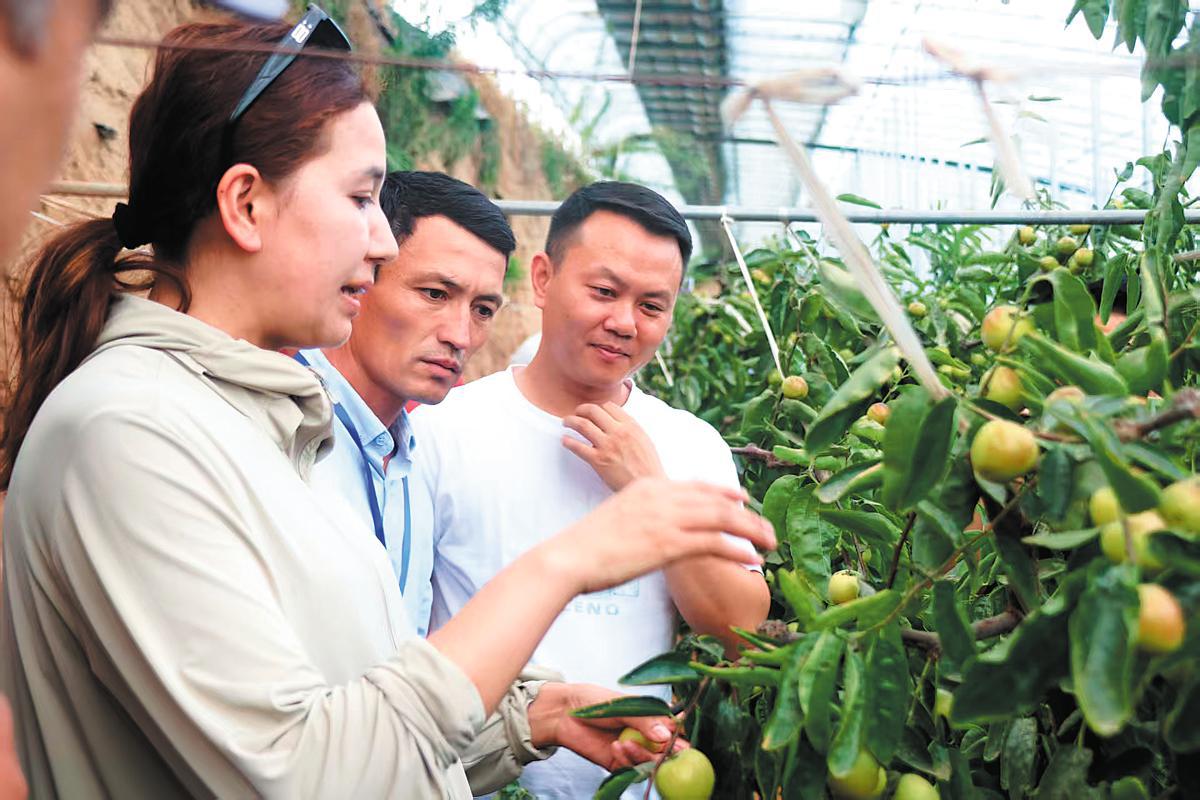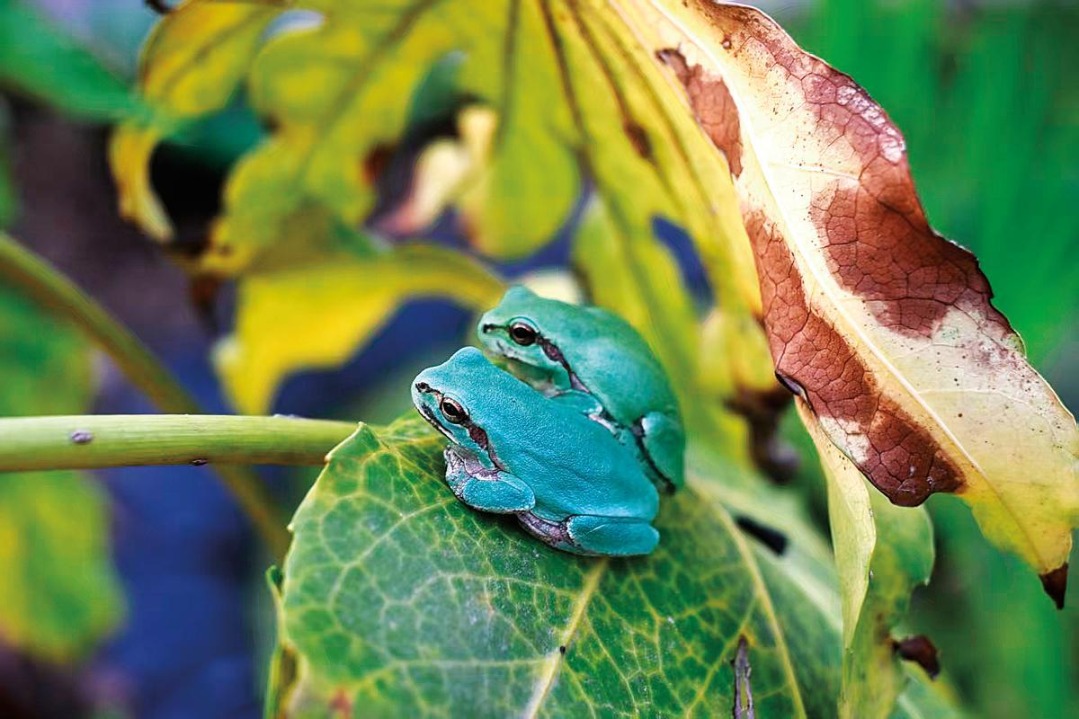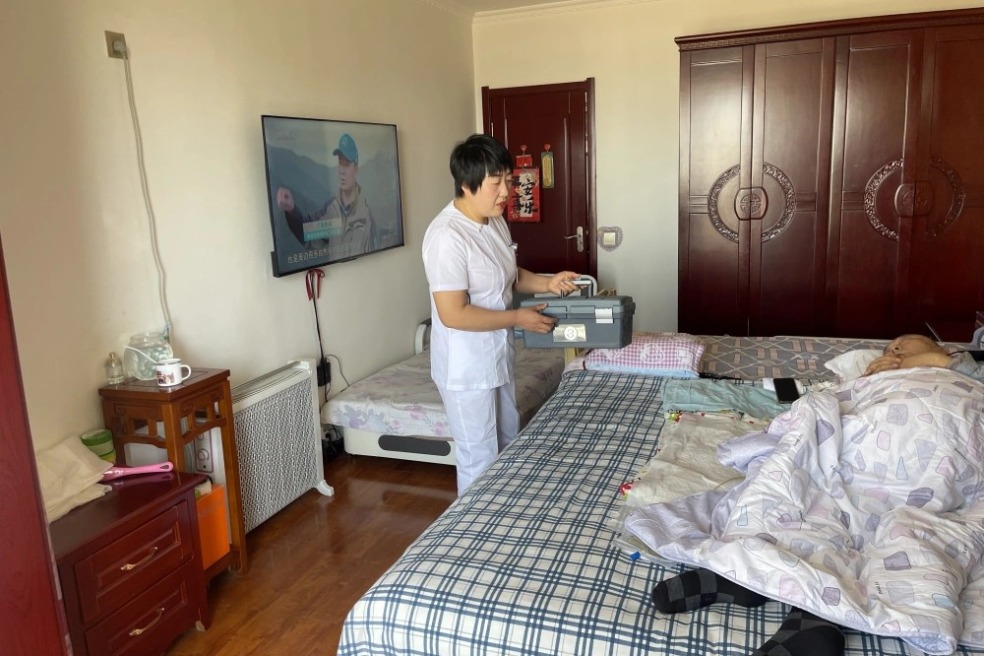Foreigners take lessons from class to farm back home
Modern Chinese agriculture inspires Uzbek, Kazakh students


While listening to the teacher's explanation of modern agricultural technology at Weinan Vocational and Technical College in Weinan city, Shaanxi province, Jasur Duvlaev could only think of how to take the knowledge back to his country to promote the development of local agricultural technology.
Duvlaev, manager and engineer of a farm in Uzbekistan, attended the China-Central Asia Five-Country Vocational Farmers Training Course at the college from June 11 to 18.
As a part of the Central Asia Vocational Farmers Training Program, the course attracted 30 farmers from Kazakhstan and Uzbekistan, including Duvlaev. "I have a strong interest in China's advanced agricultural knowledge," he said.
He said that he expected to learn about drip irrigation technology, as well as grape planting and sheep farming techniques, and greenhouse facility production technology. He had attended the training course in Weinan in December 2023, where he learned about planting and breeding.
"After returning to my country, my colleagues and I raised about 300 sheep on the farm. The construction of sheep sheds drew on the techniques I learned from Weinan, such as the application of greenhouse insulation measures and the use of photovoltaic power on the farm," he said.
They also established a 2-hectare wheat experimental field and applied drip irrigation water-saving technology, also learned in Weinan. For this session, the college selected 11 experienced experts, offering 12 courses covering various aspects such as Chinese herbal medicine culture, modern agricultural technology, and the production and processing of agricultural products and food.
"After conducting preliminary research, we found that Uzbek students showed interest in planting methods for plants and vegetables in arid climates, while Kazakh students focused on learning agricultural planting methods," said Yang Shixuan, dean of the college's School of Agriculture and Forestry. "Therefore, this session focused on planting specialized technologies of representative agricultural crops and highlighted the characteristics of Weinan's facility agriculture development."
According to Yang, the course integrated agricultural culture into modern agricultural technology teaching, combining agricultural technology with cultural elements, such as solar terms culture with farming time management. "We also arranged corresponding practical and observational activities according to the training content," he added.
The college has constructed smart agricultural training bases and professional facilities, such as group training rooms and plant protection training rooms, as well as established standardized processes for every aspect from textbook preparation to student accommodation and meals.
During the course conducted in 2024, teachers found that the students had a strong interest in agricultural mechanization, so they promptly added content on drone plant protection to the curriculum.
To eliminate language barriers during the course, the college invited a Kazakh teacher from Xi'an International Studies University and a Uzbek-speaking doctoral student, helping students from the two countries better understand the course content.
Since the program, which is an important initiative to implement the outcomes of the China-Central Asia Xi'an Summit, kicked off in Dec 2023, 120 students from Kazakhstan, Kyrgyzstan, Tajikistan and Uzbekistan have successfully completed their training courses in Weinan. "We planned to hold six training sessions in 2025, completing the training of 180 students," said Jin Huafeng, president of the college. "We will continue to optimize the curriculum system and services, improve the quality of training, help students achieve success in learning, and contribute to the agricultural development in Central Asia."
Furthermore, the college will conduct follow-up visits and on-site research on the agricultural development in Central Asian countries, then collaborate with vocational schools in Central Asia in curriculum resource development, and joint student training and research to achieve a closed loop of training-evaluation-cooperation.
"We hope to build the training course into a platform for exchanges and cooperation between China and the Central Asian countries, promoting the sustainable development of agricultural cooperation among the countries involved in the Belt and Road Initiative," Jin said.
Contact the writers at zhouhuiying@chinadaily.com.cn
- Foreigners take lessons from class to farm back home
- Video testimony of former Unit 731 member released
- Concept of ecological civilization 'inspiring'
- Experts sharpen focus on new frontiers of AI
- Swiss watchmakers celebrate birthday with Shanghai exhibition
- Documents dating to Japan's bacteriological war in China released in Guangzhou




































